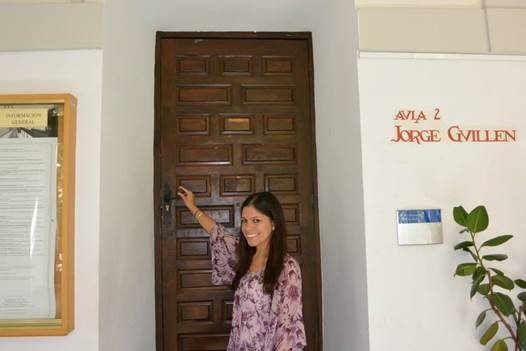When I studied abroad, one of my main goals was to learn Spanish because it was one of my majors in college, and I had studied the language since middle school. I chose a language-driven program that allowed me to fulfill 12 credits toward my degree. When I arrived in Spain, I knew I had to stay focused on learning the language and set goals early on to make sure I stayed on track.

Here are a few tips I want to share to help you successfully set goals while studying abroad:
1. Write down why you want to learn abroad.
First, identify your Ultimate Goal, the big one that will guide your overall experience. My ultimate goal was improving my language proficiency.
Once you know your Ultimate Goal, figure out what opportunities your study abroad program will give you to achieve that goal. Studying abroad in Spain gave me the opportunity to take classes at a Spanish university; interact with locals, including my home stay family, on a daily basis; and learn more about Spain’s culture—all of which contributed to my Ultimate Goal of improved Spanish language proficiency.
2. List the benefits you hope to gain, apart from your Ultimate Goal.
After orientation, I sat down at my new favorite coffee shop and wrote this list. These benefits vary from person to person. For example, an internship student could list “improved employability.” These benefits will typically be academic in nature, but you can also think about how you’d like to grow personally from your experience. Reflect on where you see yourself at the end of your time abroad and jot down those ideas. Keeping these desired benefits in mind will help you clarify your goals.
3. Break your Ultimate Goal down into smaller SMART goals.
SMART stands for Specific, Measurable, Attainable, Relevant, Time-bound. By following this formula, you’ll be able to create goals for yourself that can yield maximum reward and break up your Ultimate Goal into bite-size pieces.
For example, one of my SMART goals abroad was: “Each week, I want to learn 10 new phrases and have at least one conversation completely in Spanish with a local.” This was a realistic and attainable goal because I was continually working on my fluency but not pressuring myself to be an advanced speaker after one month in Spain. By creating smaller sub-goals I could hold myself accountable to, I was able to reflect on my wins and areas of improvement relevant to my Ultimate Goal.
Using the SMART method allows you to clearly outline a goal in order to do what it takes to achieve it.
Whether your study abroad goals are similar to or completely different than mine, I encourage you to take the time to work on goal setting for your international program. This will allow you to look back upon your experience with a defined measurement of what you were able to accomplish, and it’s a method you can continually implement in your daily life after you return home.
April Arrowood is a CEA Admissions Counselor.







